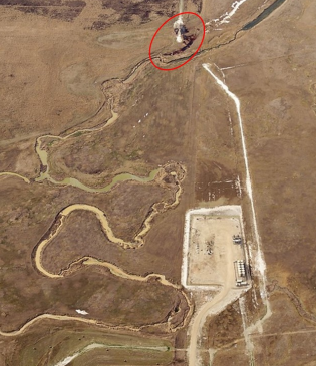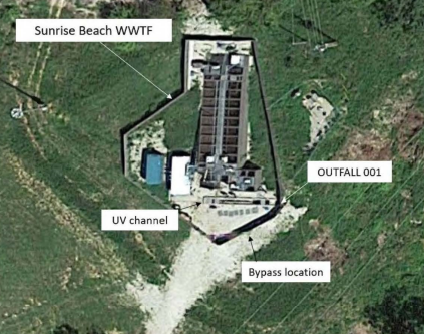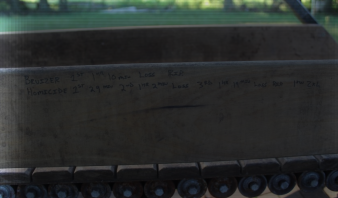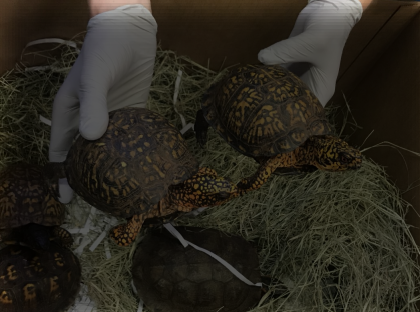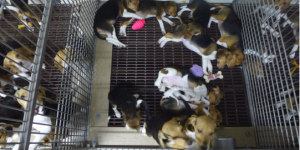Blog Post
Environmental Crimes Bulletin September 2021
In this issue:
- Biden Administration Restores Rule Prohibiting Incidental Killing of Birds Protected by Migratory Bird Act
- United States v. Brian T. Rogers, No. 8:21-CR-00618 (D.S.C.), AUSA Winston Holliday.
- United States v. Big Lake Gas Plant L.P., et al., No. 6:21-CR00057 (N.D. Tex.), AUSA Sean Taylor.
- United States v. Summit Midstream Partners, LLC, No. 1:21-CR-00152 (D. N. D.), ECS Senior Litigation Counsel Richard Udell, ECS Senior Trial Attorney Christopher Costantini, ECS Trial Attorneys Stephen Foster and Erica Pencak, AUSA Gary Delorme, and ECS Law Clerk Nate Borelli.
- United States v. Richard Gontarek, No. 2:21-mj-10321 (D.N.J.), AUSA Kathleen O’Leary.
- United States v. Jason Ksepka, No. 3:21-CR-00729 (D.N.J.), AUSA Kathleen O’Leary.
- United States v. Christopher Cox, No. 3:21-CR-05221 (W.D. Wash.), AUSA Cecelia Gregson.
- United States v. Randy Gardner, No. 4:20-CR-00633 (E.D. Mo.), AUSA Dianna Collins
- United States v. Vernon Vegas et al., No. 5:21-CR-00003 (M.D. Ga.), ECS Trial Attorney Banu Rangarajan, AUSA William Keyes, ECS Law Clerks Amanda Backer and Nate Borelli.
- United States v. Brian Tibbets et al., No. 4:21-CR-00218 (D. Idaho), ECS Trial Attorney Cassie Barnum.
- United States v. Byungsu Kim et al., No. 2:19-CR-00329 (C.D. Calif.), AUSAs Matthew W. O’Brien and Dennis Mitchell.
- United States v. Gonzalo Aguilar Doblado et al., No. 2:19-CR-00242 (D. Nev.), ECS Trial Attorney Cassie Barnum and SAUSA Rachel Kent.
- United States v. Brian Scheiter, No. 2:21-CR-04065 (W.D. Mo.), AUSA Michael S. Oliver.
- United States v. Yacenia Vanessa Orozco et al., No. 3:20-CR-03063 (S.D. Calif.), ECS Trial Attorney Stephen DaPonte and AUSA Melanie Pierson.
- United States v. Kizzy Solomon et al., No. 1:18-CR-00058 (M.D. Ga.), ECS Trial Attorney Ethan Eddy, AUSA Jim Crane, and ECS Paralegal Jillian Grubb.
- United States v. Seline Elizabeth Barraza, No. 3:20-CR-01442 (S.D. Calif.), ECS Trial Attorney Stephen DaPonte and AUSA Melanie Pierson.
- United States v. Diana Wilhelmsen Management Limited, et al., Nos. 2:20-CR-00105, 2:21-CR-00020 (E.D. Va.), ECS Senior Trial Attorney Kenneth Nelson, AUSAs Joseph Kosky and Julia Evans, and ECS Paralegal Chloe Harris.
- United States v. Cory G. Fritzler, No. 20-CR-01034 (N.D. Iowa), AUSA Tim Vavricek.
- United States v. Theodore Lutton et al., No. 1:20-CR-00774 (N.D. Ohio), AUSAs Yasmine Makridis and Brad Beeson.
- United States v. Cory Hoskins, No. 20-CR-00010 (E.D. Ky.), AUSA Tashena Fannin.
- United States v. Pittsburgh Water and Sewer Authority et al., Nos. 2:20-CR00342, 00360 (W.D. Pa.), AUSA Michael Ivory and SAUSA Martin Harrell.
- United States v. Hilda Michelle Martinez-Zazueta, No. 21-CR-01427 (S.D. Calif.), ECS Trial Attorney Stephen DaPonte and AUSA Melanie Pierson.
- United States v. Global Plywood and Lumber Trading LLC, No. 1:20-CR-00070 (S.D. Tex.), ECS Trial Attorneys Ryan Connors and Patrick Duggan.
- United States v. Jorge A. Gutierrez et al., No. 3:20-CR-00920 (W.D. Tex.), ECS Trial Attorneys Gary Donner and Mary Dee Carraway, and ECS Paralegal John Taylor.
- United States v. Yuan Xie et al., Nos. 6:19-CR-00503, 6:20-CR00218 (D. Ore.), AUSA Pamela Paaso.
Biden Administration Restores Rule Prohibiting Incidental Killing of Birds Protected by Migratory Bird Act
On September 29, 2021, the Biden administration announced it was restoring the rule under the Migratory Bird Treaty Act (MBTA), which prohibits “incidental” killing of protected birds. The Trump administration previously tried to nullify the rule.
The MBTA, passed in 1918, is the most significant federal statute focused exclusively on avian conservation. The MBTA prohibits the “taking” of over 800 species of migratory birds. Under the statute, “take” is broadly defined as “to harass, harm, pursue, hunt, shoot, wound, kill, trap, capture or collect, or attempt to engage in any such conduct.” 16 U.S.C. § 1532. The MBTA makes it a misdemeanor— punishable by up to six months in prison and/or by fine up to $15,000 per offense—to kill birds. Critically, this provision of the MBTA has long been interpreted to be “strict liability.” Thus, prosecution would lie whether or not a person, or company, intended to kill birds, birds, if their actions nonetheless had that effect.
For over 40 years, federal prosecutors have relied on that understanding to prosecute the “incidental” or unintentional killing of birds. Wind power and oil and gas operations have also been charged for violations of the MBTA for otherwise lawful operations. Simple preventative measures will very often, but not always, prevent the killing of birds incidental to energy development.
Shortly after Trump’s inauguration in 2017, that policy was withdrawn, and replaced a year later with the Memorandum M-37050 (known as the “M-Opinion”). Under the M-Opinion, only deliberate acts intended to “take” a migratory bird were prohibited under the MBTA. Incidental deaths of birds were no longer prohibited.
Eventually environmental groups, as well as eight states, brought suit challenging the opinion in the U.S. District Court for the Southern District of New York. In August, 2020, the court struck down the opinion, holding that incidental takings were enforceable under the MBTA. In October 2020, the Trump administration declared it would appeal the court’s holding. Further, on January 7, 2021, in response to the court’s ruling, the Department of Interior (under the Trump Administration) finalized a rule (codified at 50 C.F.R. § 10.14) that defined the scope of the MBTA’s prohibitions to exclude incidental takings—an interpretation previously rejected by the court.
Under the Biden administration, the Department of Interior did not pursue the appeal and announced a revocation of the Trump administration’s rule. The Biden administration is now pursuing a three-tiered approach in reinstituting the rule that liability under the MBTA includes both intentional and incidental taking:
First, on September 28, 2021, the Fish and Wildlife Service (“FWS”) signed and submitted to the Office of the Federal Register for publication in the Federal Register a regulation (the “Revocation Rule”) that “revoke[s] the January 7 rule and remove[s] the regulation codifying the interpretation set forth in the January 7 rule at 50 CFR 10.14.” Following a minimum of 60 days for public comment, the Revocation Rule will come into effect on December 3, 2021. Once the Revocation Rule is effective, “[t]he immediate effect ... is to return to implementing the MBTA as prohibiting incidental take and applying enforcement discretion, consistent with judicial precedent and longstanding agency practice prior to 2017” (emphasis added).
Concurrently with the Revocation Rule, the FWS published an enforcement policy in the form of a Director’s Order, which will go into effect on December 3, 2021. The Director’s Order “confirms that the Service has reestablished its longstanding policy and practice of enforcing the MBTA pursuant to its interpretation of the Act as prohibiting the incidental take of birds,” and “clarifies how we will prioritize program and law enforcement resources consistent with that interpretation upon the effective date of that rule . . . ”
Second, the FWS has also submitted for publication in the Federal Register an advanced notice of proposed rulemaking and a notice of intent (“ANPR/NOI”) to “codify[] [its] interpretation that the Migratory Bird Treaty Act (MBTA) prohibits incidental take of migratory birds and develop[] regulations that authorize incidental take under prescribed conditions.”
The ANPR/NOI is “an initial step in a process to achieve and manage the long-term conservation of migratory birds and provide regulatory certainty to the regulated community,” and requests public comment on potential alternatives for authorizing incidental take of migratory birds by December 3, 2021.
Third, the Director of the FWS will issue an order to consider individual and general permit authorizations for industries and business that seek to mitigate incidental deaths, such as onshore and offshore wind power generation, solar power generation, oil, gas and wastewater disposal pits, infrastructure construction and maintenance and marine fishery bycatch.
United States v. Brian T. Rogers, No. 8:21-CR-00618 (D.S.C.), AUSA Winston Holliday
On September 15, 2021, prosecutors charged Brian T. Rogers d/b/a Rogers Environmental LLC (Rogers) with making false statements and violating the Clean Air Act (18 U.S.C. § 1001; 42 U.S.C § 7413(c)(2)(A)).
In May 2018, Rogers performed an asbestos inspection for Mavin Construction on the Anderson University campus. In his inspection report, Rogers denied finding any asbestos-contaminated material. He also claimed that a lab conducted Transmission Electron Microscope (TEM) analysis, but failed to document those results. South Carolina regulations require TEM analysis on one sample of any non-friable, organically bound material that tests negative under Polarized Light Microscopy (PLM) analysis.
A Southeast Environmental Microbiology Laboratories (SEEML) Lab Technician stated that Rogers initially requested TEM analysis, but opted for PLM instead when asked how quickly he needed the results. Per Rogers’ request, The technician changed the analysis on the chain of custody form, by marking out “TEM” and writing “PLM” in its place. TEM analysis costs more and takes longer, because it has to go to another lab for analysis.
Based upon Roger’s report, subcontractors began demolishing the property. On June 20, 2018, while removing flooring from a bathroom, Wilma's Petroleum and Demolition (WPD), suspected that floor tile and black mastic under the top layer of flooring contained asbestos. The following day, Rogers returned to the site to collect two samples, reporting back to Mavin that the lab had not detected any asbestos in those samples.
WPD decided to submit its own set of samples to the lab from the same tile and mastic. The lab provided a report showing eight percent asbestos in one sample and two percent in the other sample. After state environmental agents confronted Rogers with this evidence, he admitted using his computer to change the lab results for the samples he submitted, and giving Mavin the falsified document.
During a subsequent interview with federal agents in March 2020, Rogers claimed ignorance as to the absence of TEM testing and why the lab changed the analyses to PLM. He also sent a follow-up email to those agents saying: “Will reiterate, don't remember why lab didn't run the TEM samples on the floor glue. Don't remember why we didn't have them run.”
The U.S. Environmental Protection Agency Criminal Investigation Division and the South Carolina Department of Health and Environmental Control conducted the investigation.
United States v. Big Lake Gas Plant L.P., et al., No. 6:21-CR00057 (N.D. Tex.), AUSA Sean Taylor
On September 30, 2021, Big Lake Gas Plant L.P., pleaded guilty to one count of negligent endangerment and one count of violating the Clean Air Act (CAA) (42 U.S.C. § 7413(c)(4), (c)(1)). This is part of a larger case involving five West Texas Gas, Inc., subsidiaries. The companies will spend approximately $5 million on compliance measures to resolve allegations that they violated CAA chemical accident prevention requirements at several of their natural gas processing plants.
The civil settlement requires the subsidiaries to take steps to prevent chemical accidents and improve safety at eight natural gas processing plants. Seven plants are located in Texas and one is in New Mexico. The plants use a variety of chemical processes containing toxic substances and flammable hydrocarbons, such as butane, methane, and propane.
The civil complaint states that WTG Gas Processing L.P., WTG South Permian Midstream, LLC, and Davis Gas Processing, Inc., violated Section 112(r) of the CAA and the related chemical accident prevention regulations. The Environmental Protection Agency initiated an investigation in November 2015, following a catastrophic fire that killed an employee at WTG Gas Processing’s East Vealmoor Gas Plant in Coahoma, Texas. The fire caused the release of thousands of pounds of flammable and toxic substances into the air. Additional fires, resulting in millions of dollars of damage, occurred at some of the companies’ other plants, and another employee died in August 2018 from a gas leak. The criminal case stems from this incident.
Prosecutors filed criminal charges against Big Lake Gas Plant L.P. for negligently releasing hydrogen sulfide into the ambient air. Exposure to the gas killed one employee and injured another. The company further failed to adequately update its risk management plan following the event.
The U.S. Environmental Protection Agency Criminal Investigation Division conducted the investigation, with assistance from the Texas Environmental Enforcement Task Force.
United States v. Summit Midstream Partners, LLC, No. 1:21-CR-00152 (D. N. D.), ECS Senior Litigation Counsel Richard Udell, ECS Senior Trial Attorney Christopher Costantini, ECS Trial Attorneys Stephen Foster and Erica Pencak, AUSA Gary Delorme, and ECS Law Clerk Nate Borelli
On September 22, 2021, Summit Midstream Partners, LLC (Summit), pleaded guilty to violating the Clean Water Act and Oil Pollution Act for negligently discharging oil and failing to report the discharge (33 U.S.C. §§ 1319(c)(1)(A), 1321(b) (3) and (b)(5)). Sentencing is scheduled for December 6, 2021.
The North Dakota pipeline company discharged 29 million gallons of produced water from its pipeline near Williston, North Dakota, between August 2014 and January 2015. The discharge contaminated land, groundwater, and more than 30 miles of tributaries of the Missouri River.
Summit’s negligence included the design, construction, and operation of the pipeline, as well as failing to locate and stop the spill after learning about the leak. Summit failed to share all relevant information with federal and state authorities regarding the volume and duration of the spill.
At sentencing, Summit will pay $15 million in federal criminal fines as well as restitution. Under a proposed parallel civil settlement with the United States and the State of North Dakota, Summit and related entities will pay $20 million in civil penalties, perform comprehensive injunctive relief, clean up the contamination caused by the spill, and pay $1.25 million in natural resource damages.
The U.S. Environmental Protection Agency Criminal Investigation Division conducted the criminal investigation. The U.S. EPA Office of Enforcement and Compliance Assurance, the North Dakota Department of Environmental Quality, the North Dakota Industrial Commission, the U.S. Fish and Wildlife Service, the U.S. Department of Interior, and the North Dakota Department of Game and Fish, provided assistance to both the criminal and civil investigations.
United States v. Richard Gontarek, No. 2:21-mj-10321 (D.N.J.), AUSA Kathleen O’Leary
On September 22, 2021, Richard Gontarek pleaded guilty to violating the Lacey Act for selling carvings made from sperm whale ivory (16 U.S.C. §§ 3372(a)(2)(A), 3373(d)(2)). Sentencing is scheduled for January 25, 2022.
In 2017, an anonymous individual notified law enforcement about Gontarek’s sales. Further investigation led agents to his website, where they subsequently set up an undercover operation. Posing as a buyer, an undercover agent (UC) purchased several ivory items from Gontarek. On January 3, 2018, and December 6, 2018, Gontarek shipped packages containing carvings made from a sperm whale tooth to the UC in Pennsylvania. Sperm whales are listed in Appendix I of the Convention on International Trade in Endangered Species. As part of his plea, Gontarek will forfeit a number of raw and carved ivory pieces.
The U.S. Fish and Wildlife Service Office of Law Enforcement conducted the investigation.
United States v. Jason Ksepka, No. 3:21-CR-00729 (D.N.J.), AUSA Kathleen O’Leary
On September 21, 2021, Jason Ksepka pleaded guilty to violating the Lacey Act for illegally shipping ten live iguanas to Hong Kong that he falsely labeled as “toys” (16 U.S.C. §§ 3372(d)(2), 3373(d)(3)(A)). Sentencing is scheduled for January 25, 2022.
On November 7, 2017, Ksepka shipped the package (using the name “Luke Jacobs”) from the U.S. Post Office in Lambertville, New Jersey. During a routine x-ray inspection the following day at John F. Kennedy International Airport Mail Facility, U.S. Fish and Wildlife inspectors intercepted the package. Inside, they discovered a small cardboard box labelled “Live Harmless Reptiles.” The inner box also displayed stickers reading “Ty’s Lizards,” and a handwritten note reading “10 Rhino Iguanas Cyclura cornuta.” An out-ofstate sender had affixed a shipping label addressed to Ksepka. Two fabric bags inside the box each held five iguanas.
Investigators sent the iguanas to a non-profit zoological facility for care in North Carolina.
The U.S. Fish and Wildlife Service conducted the investigation.
United States v. Christopher Cox, No. 3:21-CR-05221 (W.D. Wash.), AUSA Cecelia Gregson
On September 20, 2021, Christopher M. Cox pleaded guilty to smuggling, making false statements under the Clean Air Act, and possessing child pornography (18 U.S.C. § 545; 42 U.S.C. §§ 7413 (c)(2)(A), 7542). Sentencing is scheduled for December 10, 2021.
Between approximately 2015 and January 2019, Cox falsified paperwork on two dozen vehicles he imported from overseas, including Japan. Many of these light-weight vehicles did not meet U.S. safety standards. Cox sold some of the vehicles to mail carriers he knew from his job as a contract mail carrier. Cox falsified the vehicle certifications stating they met both safety and environmental standards. Cox used his identification as a mail carrier to circumvent inspections at the Port of Tacoma and took the vehicles from the Port without proper inspections. The total value of the imported vehicles exceeds $55,000. No one informed those who purchased the vehicles that they failed to meet federal safety and pollution standards.
As law enforcement officers executed search warrants on Cox’s electronic accounts, they observed images of child pornography.
The Homeland Security Investigations conducted the investigation, with assistance from U.S. Customs and Border Protection.
United States v. Randy Gardner, No. 4:20-CR-00633 (E.D. Mo.), AUSA Dianna Collins
On September 14, 2021, Randy Gardner pleaded guilty for his role in falsifying sampling results required under the Safe Drinking Water Act (18 U.S.C. § 1001). Sentencing is scheduled for January 13, 2022.
From approximately 2006 until 2017, Gardner worked as a drinking water operator for several communities in southern Missouri. In 2017, Gardner was employed as a water operator for the Public Water Systems servicing the cities of Hornersville and Arbyrd, Missouri, where his responsibilities included collecting monthly drinking water samples, and submitting the test results to the Missouri Department of Natural Resources (MDNR).
In June 2017, instead of properly collecting drinking water samples from approved locations within Hornersville and Arbyrd, Gardner collected water from his home tap and submitted the water samples to the MDNR Environmental Laboratory accompanied by paperwork stating where he purportedly collected the samples. Gardner’s home received drinking water from the Dunklin County Public Water District, which does not service Hornersville or Arbyrd.
Gardner’s tap water samples from his house showed E-coli present in the drinking water. As a result, the municipalities of Hornersville and Arbyrd believed their water to be contaminated with E-coli. The MDNR subsequently conducted additional drinking water testing from all three areas and determined the water was safe. Officials revoked Gardner’s water licensing, prohibiting him from operating water facilities in the State of Missouri.
The U.S. Environmental Protection Agency Criminal Investigation Division and the Missouri Department of Natural Resources conducted the investigation
United States v. Vernon Vegas et al., No. 5:21-CR-00003 (M.D. Ga.), ECS Trial Attorney Banu Rangarajan, AUSA William Keyes, ECS Law Clerks Amanda Backer and Nate Borelli
On September 14, 2021, Vernon Vegas pleaded guilty to a conspiracy to violate the animal fighting venture prohibitions of the federal Animal Welfare Act (7 U.S.C. § 2156; 18 U.S.C. §§ 49, 371).
Between October 1996 and February 2020, Vegas d/b/a Cane Valley Kennels bred, trained, sold, and transported dogs for the purpose of engaging in animal fighting ventures. The dogs fought in the U.S. Virgin Islands, Georgia, and elsewhere. Vegas engaged with a number of co-conspirators in this wide-spread dog-fighting conspiracy, not only supplying animals, but also equipment, pedigree documents, medicine, and advice to facilitate these fights. In addition, Vegas designed and offered a 7-week “keep” according to which he trained dogs for fights. While executing a search warrant in February 2020, law enforcement seized $115,080 in cash that Vegas hid in a secret compartment in his truck.
Vegas is one of 14 individuals charged with animal fighting and drug charges. The other defendants are: Jarvis Lockett, Christopher Raines, Armand Davis, Lekey Davis, Kathy Ann Whitfield, Jason Carter, Bryanna Holmes, Rodrick Walton, Shaquille Bentley, Derick Owens, Lee Benney, and Reginald Crimes.
The Drug Enforcement Administration and the U.S. Department of Agriculture Office of the Inspector General conducted the investigation, with assistance from the U.S. Marshals Service and local law enforcement agencies.
United States v. Brian Tibbets et al., No. 4:21-CR-00218 (D. Idaho), ECS Trial Attorney Cassie Barnum
On September 9, 2021, Brian Tibbets pleaded guilty to violating the Clean Air Act for failing to inspect a facility for the presence of asbestos prior to commencing a demolition project (42 U.S.C. § 7413(c)(1)).
In late 2017, Tibbets and a co-defendant (“owners”) purchased two buildings in Burley, Idaho, in order to demolish them and build a parking lot. During a walkthrough with city officials, the building inspector pointed out likely asbestos-containing material (ACM). In further communications with the city (prior to negotiations breaking down), other city employees also warned the owners about the presence of ACM and the need for remediation. The owners took “samples” from the buildings that included wood, brick, and stone (but no building materials that could plausibly contain ACM), and submitted those to a forensic lab for analysis.
In January 2018, a fire started in both buildings (with arson suspected). After seeing the fire on the news, a local contractor contacted the owners and offered to demolish what remained of the buildings using his own asbestos inspector and remediation company. The owners accepted the contractor’s bid, but said they would hire their own remediation company. Two days later, the contractor saw the buildings under demolition. The owners chose to hire an individual to knock them down without conducting any asbestos abatement, resulting in several truckloads of debris hauled to a nearby landfill. The owners lied to an inspector during a subsequent conversation about any onsite testing. Further sample analysis from the National Enforcement Investigation’s Center from the sites documented multiple areas with ACM.
The U.S. Environmental Protection Agency Criminal Investigation Division conducted the investigation.
United States v. Byungsu Kim et al., No. 2:19-CR-00329 (C.D. Calif.), AUSAs Matthew W. O’Brien and Dennis Mitchell
On September 9, 2021, Byungsu Kim pleaded guilty to violating the Lacey Act for poaching protected wild succulent plants (16 U.S.C. §§ 3372(a)(2)(B), 3373(d)(1)). Following Kim’s extradition from South Africa, he pleaded guilty for attempting to export live Dudleya succulent plants worth more than $600,000 to Asia that he and co-defendants illegally harvested from remote state parks in Northern California. Sentencing is scheduled for January 13, 2022.
On October 11, 2018, Kim, Youngin Back, and Bong Jun Kim, drove from Los Angeles International Airport to Crescent City, California. Between October 14 and October 16, 2018, they removed numerous Dudleya plants from DeMartin State Beach in Klamath, California, and Del Norte Coast Redwoods State Park.
A few days later, they unloaded almost 1,400 plants at a nursery to obtain certification for shipment to South Korea. Kim told the county agriculture inspector that the certificate should note the place of origin as “San Diego County”, which was false. After receiving the certification, they took the plants to a commercial exporter in Compton for shipment to South Korea. After they left, local law enforcement executed a search warrant at the cargo shipping company finding more than 3,000 illegally harvested Dudleya plants in boxes labeled “Rush” and “Live Plants.”
Further investigation confirmed Kim conducted internet searches for “poaching succulents” and “dudleya,” which included a press release concerning convictions of other Dudleya poachers.
Although California law enforcement officials confiscated Kim’s passport following his arrest, he managed to obtain a replacement in January 2019 from the South Korean Consulate by telling them he lost his passport. Kim fled to Mexico with co-defendant Back in May 2019, traveling on foot through the Tijuana-San Ysidro border crossing. Using his fraudulently obtained passport, Kim flew to South Korea with Back.
In October 2019, officials arrested Kim in South Africa for illegally collecting plants from protected areas there, for export to South Korea. Kim pleaded guilty to the criminal charges in South Africa and officials extradited him to the United States in October 2020.
Bong Jun Kim pleaded guilty in July 2019 to violating the Lacey Act and served four months’ incarceration as time-served. Back remains a fugitive.
The California Department of Fish and Wildlife; the U.S. Fish and Wildlife Service; Homeland Security Investigations; U.S. Customs and Border Protection; San Diego County’s Department of Agriculture, Weights and Measures; the U.S. Department of Agriculture; and the California State Parks conducted the investigation.
United States v. Gonzalo Aguilar Doblado et al., No. 2:19-CR-00242 (D. Nev.), ECS Trial Attorney Cassie Barnum and SAUSA Rachel Kent
On September 8, 2021, Gonzalo Aguilar Doblado pleaded guilty to violating the Clean Air Act (CAA) (42 U.S.C. § 7413(c)(1)). Sentencing is scheduled for December 8, 2021.
Bobby Khalili employed Doblado to renovate an apartment complex in Las Vegas, Nevada, in 2016. The renovation involved removing regulated asbestos-containing material (RACM), specifically, wall texture and acoustic ceiling tile, from several apartments. Doblado and others violated the CAA by improperly removing the RACM. They placed dry RACM into an open dumpster located in the apartment complex’s courtyard, releasing asbestos-laden dust into the ambient air.
Doblado performed a similar renovation in 2014. Local authorities halted the renovation at that site after discovering asbestos material on the premises. Clark County personnel informed Doblado in 2014 how to properly and legally handle RACM during renovation projects.
The U.S. Environmental Protection Agency Criminal Investigation Division conducted the investigation
United States v. Brian Scheiter, No. 2:21-CR-04065 (W.D. Mo.), AUSA Michael S. Oliver
On September 2, 2021, Brian Scheiter pleaded guilty to violating the Clean Water Act for discharging a pollutant and failing to report the discharge (33 U.S.C. §§ 1311(a), 1319(c)(1)(4), 1342).
The state of Missouri employed Scheiter as the City of Sunrise Beach Operator and Public Works Director. In October 2019, a whistleblower (former city employee Brandon Mitchell) alerted local environmental officials of unlawful sewage bypasses at the Sunrise Beach wastewater treatment facility.
Investigators determined that, between October 2019 and January 2020, Scheiter diverted sewage and wastewater from proper treatment into a pipe that directly discharged into the Lake of the Ozarks. Scheiter also failed to report these bypasses.
According to Mitchell, frequent bypasses were part of a larger pattern of illegal activity at the plant, including poor water treatment practices, falsified records, and employee intimidation. Scheiter knew the right way to operate the plant, but frequently cut corners on operations and equipment expenses. In order to save money, he failed to repair or replace broken pumps and hoses. Scheiter often turned off the pump aerators and charcoal filter systems, because “they used a lot of electricity.”
The U.S. Environmental Protection Agency Criminal Investigation Division and the Missouri Department of Natural Resources conducted the investigation.
United States v. Yacenia Vanessa Orozco et al., No. 3:20-CR-03063 (S.D. Calif.), ECS Trial Attorney Stephen DaPonte and AUSA Melanie Pierson
On September 29, 2021, a court sentenced Yacenia Vanessa Orozco to 60 days’ incarceration, followed by one year of supervised release. Orozco will pay $1,200 in restitution joint and several with her sister, Sofia Veronica Gloria Ruiz. Both pleaded guilty to conspiring to violate the Federal Insecticide, Fungicide, and Rodenticide Act (18 U.S.C. § 371). Ruiz will complete a two-year term of probation.
Authorities apprehended the defendants in August 2020 as they entered the United States with undeclared pesticides (nine bottles of “Qufuran, two bottles of “Biomec,” three bottles of “Agrimec,“ eight bottles of “Malation,” and three bottles of “Exalt.”)
Those involved in clandestine marijuana grows use these and other illegal pesticides to cultivate unregulated marijuana on both public and private land in the United States.
The U.S. Environmental Protection Agency Criminal Investigation Division and Homeland Security Investigations conducted the investigation.
United States v. Kizzy Solomon et al., No. 1:18-CR-00058 (M.D. Ga.), ECS Trial Attorney Ethan Eddy, AUSA Jim Crane, and ECS Paralegal Jillian Grubb
On September 24, 2021, a court sentenced the last four of twelve defendants in this dog fighting conspiracy: Leslie Meyers will serve 123 months’ incarceration, Kizzy Solomon will serve 30 months, Orlando Johnson 30 months, and Kevin Charles 18 months, resulting in 272 months’ total. Meyers’ sentence is believed to be the longest ever imposed in a federal dog fighting case that did not include unrelated drug and weapons’ charges.
A jury convicted Solomon in June 2021 on aiding and abetting the possession and training of dogs for purposes of an animal fighting venture. The other eleven defendants pleaded guilty to conspiracy to violate the dog fighting prohibitions of the Animal Welfare Act, and other substantive charges. Meyers also pleaded guilty to being a felon in possession of a handgun, which he brought to the dog fight at issue.
This case was based largely on a “two-card” dog raided in progress on January 21, 2017, fight in Sumter County, Georgia. Meyers traveled from Florida to attend and exhibit a dog in one of the fights. Authorities recovered two injured dogs and one dead animal from the scene, along with several firearms and more than $18,000 cash. Law enforcement ultimately seized dog fighting equipment, injectable veterinary steroids, and 44 fighting dogs.
The U.S. Department of Agriculture Office of Inspector General, the Sumter County Sheriff’s Office, and Decatur County Animal Control conducted the investigation.
United States v. Seline Elizabeth Barraza, No. 3:20-CR-01442 (S.D. Calif.), ECS Trial Attorney Stephen DaPonte and AUSA Melanie Pierson
On September 24, 2021, a court sentenced Seline Elizabeth Barraza to 60 days’ incarceration, followed by two year’s supervised release. Barraza also will pay $1,790 in restitution. A jury convicted Barraza in May 2021 on smuggling charges (18 U.S.C. § 545).
Authorities apprehended Barraza in February 2020 as she attempted to enter the United States with undeclared pesticides (12 bottles of “Mataldane 600,“ six bottles of “Furadan,” six packages of “Raizal,” and one bag of “Haifa MAP“ fertilizer).
Those involved in clandestine marijuana grows use illegal pesticides to cultivate unregulated marijuana on both public and private land in the United States.
The U.S. Environmental Protection Agency Criminal Investigation Division and Homeland Security Investigations conducted the investigation.
United States v. Diana Wilhelmsen Management Limited, et al., Nos. 2:20-CR-00105, 2:21-CR-00020 (E.D. Va.), ECS Senior Trial Attorney Kenneth Nelson, AUSAs Joseph Kosky and Julia Evans, and ECS Paralegal Chloe Harris
On September 23, 2021, a court sen tenced vessel owne r Diana Wilhelmsen Management Limited to pay a $2 million fine, complete a four-year term of probation, and implement an environmental compliance plan. The company pleaded guilty to violating the Act to Prevent Pollution from Ships for actions taken by the crew of the M/V Protefs (33 U.S.C. § 1908).
The Coast Guard inspected the Protefs on June 10, 2020, in Newport News, Virginia. Prior to the inspection, four engineering crewmembers provided a letter and photographs to the inspectors regarding illegal discharges of bilge water and oily mixtures made from the vessel. Between April and June 2020, the crew also failed to record these discharges in the oil record book.
Chief engineer Vener Dailisan will pay a $3,000 fine and complete a two-year term of probation. Dailisan pleaded guilty to making a false statement regarding the improper maintenance of the vessel’s sounding log (18 U.S.C. §1001.)
The U.S. Coast Guard conducted the investigation.
United States v. Cory G. Fritzler, No. 20-CR-01034 (N.D. Iowa), AUSA Tim Vavricek
On September 23, 2021, a court sentenced Cory G. Fritzler to two months’ incarceration, followed by two months’ home detention, and one year of supervised release. Fritzler also will pay a $5,000 fine, after pleading guilty to conspiracy (18 U.S.C. § 371).
Fritzler operated a guiding and outfitting business known as “NE Iowa Outfitters.” The Northeastern Iowa region is nationally recognized as a prime geographic area for hunting mature whitetail buck deer. Hunters travel to Northeastern Iowa to hunt high value, mature buck deer with large antlers. The demand for out-of-state hunting licenses, however, greatly exceeds supply.
During the 2015 hunting season, Fritzler agreed to conduct an illegal hunt with two undercover law enforcement officers (posing as hunters from Florida.) They agreed to pay $3,450 per person for the five-day hunt, plus an additional $500 per person for illegal licenses that Fritzler supplied. Fritzler recruited others to participate in the illegal hunting scheme by, applying for, and receiving Iowa hunting licenses and tags to cover the deer.
Also during the 2015 season, Fritzler guided two non-resident hunters from Louisiana. One of them shot and wounded a prized “double drop tine buck” (known as “the Monster Buck.”) When they failed to obtain out-of-state licenses the following year, Fritzler accepted $3,450 from the hunters to guide and outfit their illegal hunts during the 2016 hunting season. He told them to say they hunted in a public area in Wisconsin to hide the fact that they were illegally hunting in Iowa. When questioned by law enforcement, Fritzler and the Louisiana hunters told them this false version of events. As the investigation progressed, Fritzler encouraged the Louisiana hunters to “stick to their story.”
The United States Fish and Wildlife Service, the Iowa Department of Natural Resources, and the Florida Fish and Wildlife Conservation Commission, conducted the investigation.
United States v. Theodore Lutton et al., No. 1:20-CR-00774 (N.D. Ohio), AUSAs Yasmine Makridis and Brad Beeson
On September 16, 2021, a court sentenced Christine Lutton to one year of probation, after pleading guilty to violating the Migratory Bird Treaty Act (MBTA) (16 U.S.C. §§ 703, 707(a)).
Prosecutors charged Lutton and her husband, Theodore, with violating the MBTA, the Bald and Golden Eagle Protection Act, drug charges, and illegally possessing 27 firearms (16 U.S.C. §§ 668a, 703, 707(a); 18 U.S.C. §§ 922, 924; 21 U.S.C. §§ 841).
In October 2020, federal agents executed a search warrant at the Lutton residence. They seized 20 firearms, blasting caps, a hand grenade, Kevlar vests, a dead bald eagle, and an improvised explosive device. As a convicted felon for a prior drug conviction, Theodore Lutton cannot legally possess firearms. Investigators also found a frozen redtailed hawk, in violation of the MBTA. After arresting Lutton, investigators discovered additional firearms following the search of a second residence. He will be scheduled for trial in 2022.
The Federal Bureau of Investigation and the Columbiana County Sheriff’s Office conducted the investigation.
United States v. Cory Hoskins, No. 20-CR-00010 (E.D. Ky.), AUSA Tashena Fannin
On September 15, 2021, a court sentenced Cory Hoskins to complete a five-year term of probation, to include six months’ home detention. Hoskins pleaded guilty to violating the Hazardous Materials Transportation Act for transporting hazardous materials using false shipping papers and/or lacking placards and labels (49 U.S.C. § 5124.)
Hoskins began operating Advanced TENORM Services, a small family-owned waste disposal business in 2015. Throughout the course of doing business, Hoskins claimed expertise in radiological testing, surveying, transporting, and disposing of various types of waste. Between July and December 2015, Hoskins fraudulently disposed of oil and gas waste (sludge) from Fairmont Brine Processing in West Virginia. Based upon sample results, Hoskins knew the sludge tested above safe radioactive levels. He ultimately caused the shipment of approximately 34 tractor-trailer sized containers (vacuum boxes) from West Virginia to Kentucky, while concealing the true nature of the material from the shipping company.
The Department of Transportation Office of Inspector General conducted the investigation.
United States v. Pittsburgh Water and Sewer Authority et al., Nos. 2:20-CR00342, 00360 (W.D. Pa.), AUSA Michael Ivory and SAUSA Martin Harrell
On September 14, 2021, a court sentenced the Pittsburgh Water and Sewer Authority (PWSA), the second largest municipal water authority in Pennsylvania, to complete a three-year term of probation to include a comprehensive and expansive environmental compliance plan that PWSA will fund for $500,000. The company pleaded guilty to one count of violating a condition of its National Pollutant Discharge Elimination System (NPDES) permit (under the Clean Water Act) and making a false statement (33 U.S.C. §§ 1319(c)(4), 1311, 1342, 1319(c)(2)).
The investigation initially centered on the PSWA’s drinking water treatment plant located on the banks of the Allegheny River. As the investigation progressed, it focused on the treatment and disposition of clarifier sludge.
The process of transforming raw, untreated water into potable drinking water requires several steps. Workers add chemicals to the water causing the solids to clump together. Afterwards, they pump the water to sedimentation basins, allowing it to settle. They then transfer the water to the Clarifier Building, where it undergoes additional processing. Workers move the sludge created at this stage to a holding facility (known as the sludge pit) with pipes leading to a sewer line, as well as the river.
Periodically, workers cleaned and drained the clarifiers, pumping the accumulated sludge into the sludge pit. They referred to the wastewater generated during this process as “clarifier blowdown.”
The NPDES permit only authorized the PWSA to discharge rainwater and clarifier blowdown directly into the river. On a number of occasions between 2010 and 2017, however, plant supervisors and other personnel discharged raw, untreated clarifier sludge directly into the river. These discharges only occurred when workers shut down the clarifiers for cleaning. The sludge removed daily automatically flowed via the sludge pit and piping to the wastewater treatment plant.
In addition to the NPDES permit, regulators required the PWSA to comply with an Industrial User permit. This permit allowed it to discharge one million gallons of sludge per day to the publically owned treatment works. The PWSA installed sludge flow monitors at the sludge pit and the clarifier basins to measure and monitor the sludge. The biannual Self Compliance Monitor Reports (SCMR) submitted to regulators included this flow meter data. By late December 2014, four of the flow meters failed to operate. Instead of fixing the meters, a plant supervisor directed personnel to use estimated numbers extrapolated from the data provided by the unbroken meters. They included this data on multiple SCMRs. The SCMRs also falsely stated that plant personnel regularly checked the flow meters and calibrated them. Employees repaired the meters only after one of them alerted investigators to the problem.
Prosecutors charged plant supervisor, Glenn Lijewsky, with conspiracy and violating the Clean Water Act. Trial is scheduled to begin on April 4, 2022.
The U.S. Environmental Protection Agency Criminal Investigation Division conducted the investigation.
United States v. Hilda Michelle Martinez-Zazueta, No. 21-CR-01427 (S.D. Calif.), ECS Trial Attorney Stephen DaPonte and AUSA Melanie Pierson
On September 7, 2021, a court sentenced Hilda Michelle Martinez-Zazueta to timeserved, followed by one year of supervised release. She also will pay $1,000 in restitution, after pleading guilty to conspiring to violate the Federal Insecticide, Fungicide, and Rodenticide Act (18 U.S.C. § 371).
Authorities apprehended the defendant in April 2021 as she attempted to enter the United States with 18 bottles of undeclared “Bovitraz” and “Tactik.”
People use these pesticides to kill mites on bees and livestock. The U.S. Environmental Protection Agency bans them for causing environmental harm.
The U.S. Environmental Protection Agency Criminal Investigation Division and Homeland Security Investigations conducted the investigation.
United States v. Global Plywood and Lumber Trading LLC, No. 1:20-CR-00070 (S.D. Tex.), ECS Trial Attorneys Ryan Connors and Patrick Duggan
On September 3, 2021, a court sentenced Global Plywood and Lumber Trading LLC (Global Plywood) to pay a $5,000 fine and make $200,000 in restitution to the Ministry of Environment of Peru. The company violated the Lacey Act for failing to exercise due care when it imported illegally-sourced timber from the Peruvian Amazon into the United States (16 U.SC. § 3372(a)(2)(B), 3373(d)(2)).
In August 2015, Global Plywood purchased approximately 1,135 cubic meters of hardwood from three Peruvian suppliers. The wood, consisting of species of Virola from the Loreto region of the Peruvian Amazon, arrived at the Port of Houston on September 27, 2015, aboard the M/V Yacu Kallpa. Customs and Border Protection officers boarded the vessel and seized the wood.
Peru issues Forest Travel Guides (FTGs) to establish a chain of custody to verify the legal harvest and transportation of its timber resources. The Agency for Supervision of Forest Resources and Wildlife (OSINFOR) audits harvest sites to ensure legal compliance. OSINFOR made its findings available on SIGO, an open-source website maintained by the Peruvian government. Importers are able to check SIGO to determine if there have been any irregularities regarding specific harvest permits and FTGs. Global Plywood knew about these resources as well as public reports detailing instances of illegal logging and fraud within the Peruvian timber industry.
The investigation revealed that approximately 92% of the wood imported by Global Plywood was unlawfully harvested or transported. The company failed to exercise due care in that it (i) did not obtain or review relevant harvest permits or FTGs prior to import, (ii) failed to check SIGO for irregularities connected to the timber purchased, and (iii) relied on statements made by suppliers without further investigation into the veracity of those statements.
Global Plywood dissolved in 2017, after resolving a civil action to forfeit and dispose of the wood.
The Trade Enforcement Group of Homeland Security Investigations and Customs and Border Patrol conducted the investigation, with assistance from Peruvian authorities.
United States v. Jorge A. Gutierrez et al., No. 3:20-CR-00920 (W.D. Tex.), ECS Trial Attorneys Gary Donner and Mary Dee Carraway, and ECS Paralegal John Taylor
On September 2, 2021, a court sentenced Jorge A. Gutierrez to 34 months’ incarceration, followed by three years’ supervised release.
Gutierrez pleaded guilty to conspiring to smuggle wildlife and substantive smuggling charges for his role in a wildlife trafficking ring (18 U.S.C. §§ 371, 554).
Between April 2015 and February 2020, Gutierrez and others acted as middlemen in a group that smuggled hundreds of species of wildlife from Mexico into the United States. Suppliers based in Mexico sold protected species of reptiles, amphibians, and birds, to United States - based customers. Gutierrez retrieved animals from the airport in Juarez, Mexico, and either transported the wildlife across the border to ship to U.S. customers, or transported them to a pre-arranged meeting place in Juarez to another middleman who then smuggled them into the United States. Gutierrez charged a “crossingfee,” for his services, based upon the number and size of animals he transported, many of which are protected under the Convention on International Trade in Endangered Species.
On September 2016, Gutierrez retrieved a protected Central American river turtle from the airport in Juarez. He transported the turtle to another middleman at a prearranged location who then smuggled it across the border via an El Paso, Texas, border crossing. Experts valued the turtle at $1,650.
U.S. Fish and Wildlife officers apprehended Gutierrez as part of Operation Bale Out, an ongoing effort to detect, deter, and prosecute those engaged in the illegal trafficking in protected species. Gutierrez and his co-conspirators illegally transported wildlife valued in excess of $3.5 million.
United States v. Yuan Xie et al., Nos. 6:19-CR-00503, 6:20-CR00218 (D. Ore.), AUSA Pamela Paaso
On September 2, 2021, a court sentenced Chinese national Yuan Xie to pay a $15,000 fine, complete a fiveyear term of probation, and perform 500 hours of community service. Xie pleaded guilty to smuggling hundreds of endangered turtles from the United States to China (18 U.S.C §§ 371, 554).
Between December 2016 and February 2019, Xie conspired with another Chinese national, Xiao Dong Qin, to purchase close to 800 live turtles from reptile dealers in multiple states. The species included Florida box turtles, eastern box turtles, North American wood turtles, spotted turtles, diamondback terrapins, three-toed box turtles, and yellow-blotched map turtles, all protected by the Convention on International Trade in Endangered Species. They smuggled the reptiles from the United States to China via U.S. Mail and commercial airline flights to China. The turtles’ market value (based upon demand from the Chinese pet trade) exceeded $300,000. Xie also will pay $2,233 in restitution to law enforcement to reimburse costs incurred for caring for the rescued turtles.
A court sentenced Qin in February 2020 to complete a two-year term of probation and pay $7,858 in restitution.
The U.S. Fish and Wildlife Service conducted the investigation with assistance from the U.S. Postal Inspection Service.
Environmental Crimes Bulletin
Updated December 5, 2023

 U.S. Department
of Justice
U.S. Department
of Justice

